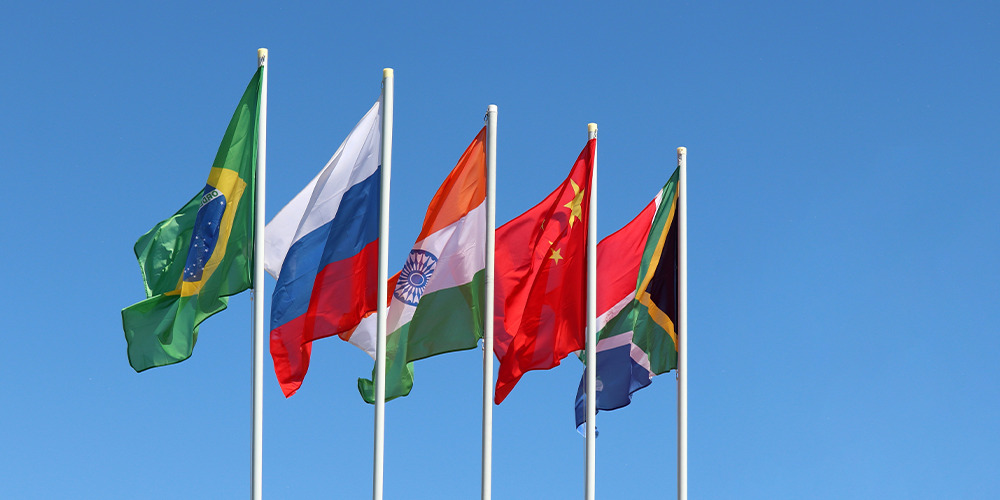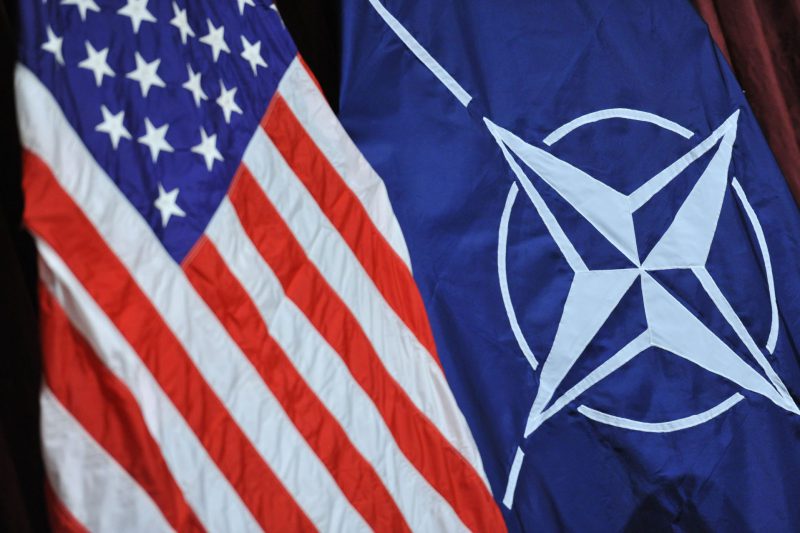US-NATO sanctions on BRICS are actually being used right now as a strategic weapon that’s targeting the alliance’s economic foundations through Russian oil sanctions and China India oil imports restrictions. NATO Secretary General Mark Rutte’s ultimatum to halt Russian oil purchases represents more than just energy policy—it’s actually a calculated move to weaken BRICS energy trade while boosting the western arms market at the same time.
Also Read: BRICS vs NATO: Who Has More Military and Economic Power in 2025
Sanctions, Energy And Arms: US-NATO’s Playbook Against BRICS


Energy Targeting Strategy
The US-NATO sanctions on BRICS focus on Russia’s oil exports, which account for about 15% of global supply right now. Trump threatened to punish nations with an additional 100% tariff for non-compliance with Russian oil sanctions. This strategy aims to disrupt China India oil imports and weaken BRICS energy trade cooperation.
Rutte specifically targeted India, Brazil, and China—all BRICS members—while omitting Turkey, a NATO member that’s actually the third-largest Russian crude importer. This selective approach reveals the geopolitical calculations behind US-NATO sanctions on BRICS.
Market Response and Arms Focus
Stock markets remained largely indifferent to the threats, which suggests investors understand the self-harm potential. European nations still purchase 19% of their natural gas from Russia despite moving away from Russian oil. Blocking Russian oil distribution would increase crude prices by 20-30% from current $68 per barrel levels.
The western arms market benefits from this strategy as US-NATO sanctions on BRICS create opportunities for defense contractors. By pressuring BRICS nations on Russian oil sanctions, Western powers aim to demonstrate influence while opening new markets for arms sales.
BRICS Resistance and Future Impact
China opposes the sanctions while Russia dismisses Western threats, indicating limited success for US-NATO sanctions on BRICS. The alliance prioritizes economic interests over diplomatic pressure, which may strengthen their resolve against Russian oil sanctions compliance.
Trump’s focus on arms sales and countering China reflects broader objectives beyond energy. The sanctions serve multiple purposes: testing BRICS unity, disrupting China and India oil imports, and expanding the western arms market.
Also Read: The Mighty BRICS Folds Under Pressure
Current developments suggest US-NATO sanctions on BRICS have become tools for geopolitical competition rather than conflict resolution. BRICS resistance may accelerate alternative economic systems development, reducing dependence on Western-dominated structures and strengthening BRICS energy trade independence.





